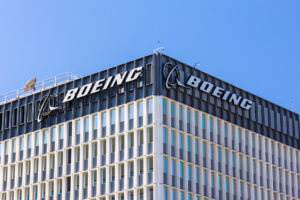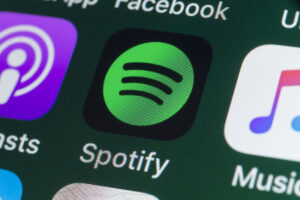Google accused of destroying internal messages, Boeing CEO decries internal strife
Plus, Glassdoor chief says remote work will stick around.

Greetings, comms pros! Let’s take a look at a few news stories from the past week and see what we can learn from them.
1 . NYT report alleges Google surveilled and suppressed employee messages
While it’s understandable that some things need to stay within the walls of a company, a recent New York Times investigation alleged that Google repeatedly told its employees to destroy messages, avoid using sarcasm and correspondence with certain casual language terms and regularly cc’ed lawyers on employee emails.
In a 2008 internal memo, executives claimed these measures were taken to avoid antitrust lawsuits. This began a years-long trend of stifling internal communication with the idea that competitors might seize on internal conversations.
“We believe that information is good,” the executives told employees in the memo. But, they added, government regulators or competitors might seize on words that Google workers casually, thoughtlessly wrote to one another.
To minimize the odds that a lawsuit could flush out comments that might be incriminating, Google said, employees should refrain from speculation and sarcasm and “think twice” before writing one another about “hot topics.” “Don’t comment before you have all the facts,” they were instructed.
How Google developed this distrustful culture was pieced together from hundreds of documents and exhibits, as well as witness testimony, in three antitrust trials against the Silicon Valley company over the last year. The exhibits and testimony showed that Google took numerous steps to keep a lid on internal communications.
There’s a lot to unpack here, but from an internal comms standpoint, if your people feel like they’re being watched too closely or stifled when communicating internally, you’re sowing the seeds for negative cultural ramifications and feelings of distrust. Google is one of the most powerful companies on the planet, and a household name, so a story like this isn’t going to do a ton to damage its reputation as an employer.
In addition, it’s also worth considering the impact of the antitrust SEO ruling against Google earlier this year and how this development puts its potential impacts on employer brand back in the news cycle. The worse Google looks in the public spotlight, the more of a reputational hit it takes with prospective talent. When your company’s name pops up in the news, people inside the company are going to notice. Negative impacts on the brand affect your standing as an employer and push prospects to choose to spend their talent elsewhere.
2. Boeing CEO claims ‘low’ at an all-hands meeting
2024 has been a year to remember for Boeing. There have been well-documented issues with safety and manufacturing processes, its acquisition of the manufacturer of Spirit Aerosystems, a leadership change, and a drawn-out employee strike.
New CEO Kelly Ortberg didn’t mince words during a recent all-hands meeting, claiming that the company had hit an “a low” and things needed to turn around, starting with company culture and accountability.
According to The Wall Street Journal:
“We spend more time arguing amongst ourselves than thinking about how we’re going to beat Airbus,” Ortberg said. “Everybody is tired of the drumbeat of ‘what’s wrong with Boeing?’ I’m tired of it and I haven’t been here that long.”
“We have an opportunity today to come racing out of where we are and to really improve,” he added.
Saying Ortberg has his work cut out for him is an understatement. But he’s starting in the right direction — overhauling the company’s culture, processes and morale can improve and in turn, so can Boeing’s reputation as an employer and company.
It’s not an overnight process, and Boeing’s leadership has a lot of work ahead of them to rehabilitate Boeing’s image. Boeing itself cited the need for a culture recalibration, and that process begins with finding unifying factors up and down the employee ladder and the ability to create operational accountability while tying it back to a core purpose.
By beginning with company culture, acknowledging there’s a problem with it and committing to getting things right in that area, Boeing has a chance to start 2025 on a much more positive note, and good leadership comms will help set the tone.
3. Remote work ’here to stay’, says Glassdoor CEO
Despite much of the remote work discussion centering on RTO processes, not every company is calling their employees back to their desks. Glassdoor CEO Sutherland Wong is doubling down on a flexible work model, claiming it represents the future of work.
In an interview with Fortune, Wong said that remote work has increased the company’s ability to recruit globally.
“The biggest benefit we’ve seen is being able to tap into talent all around the US and the globe that we didn’t have access to when we were office-based,” he said. “The workplace is far more distributed than it was pre-2020,” he said.
Wong’s words are interesting for a couple of reasons. First, it’s unique in late 2024 to see a CEO coming out in defense of RTO in such an emphatic way. Second, consider the purpose of Wong’s business — workplace reviews. As the go-to place for people to air their grievances (or post positive things about their companies) about their jobs, you’ve got to imagine that Wong needs to keep his employees happy, and remote work is a good perk to do so.
This makes his takes both biased toward the business and indicative of all the research Glassdoor collects. The company just released its Worklife Trends report for 2025, and it makes sense for Glassdoor to want to be on the positive side of the report’s conclusions, including data showing increasing employee resentment toward their employers.
Additionally, Wong makes a good point about remote work expanding the pool of potential employees. Remote work offers the opportunity to bring in more diverse candidates — both geographically and background-wise. That’s good for business.
4. How about some good news?
- The bells of Notre-Dame de Paris are ringing again after a massive 2019 fire.
- The world’s largest coral was discovered off the Solomon Islands.
- A United Airlines pilot bought pizza for passengers after an emergency landing.
- Ragan Training is great for communications pros to find inspiration and resources.
- You should be rewarded for your work. Find out how to earn an award here!
Have a great weekend comms all-stars!
Sean Devlin is an editor at Ragan Communications. In his spare time he enjoys Philly sports, a good pint and ’90s trivia night.







